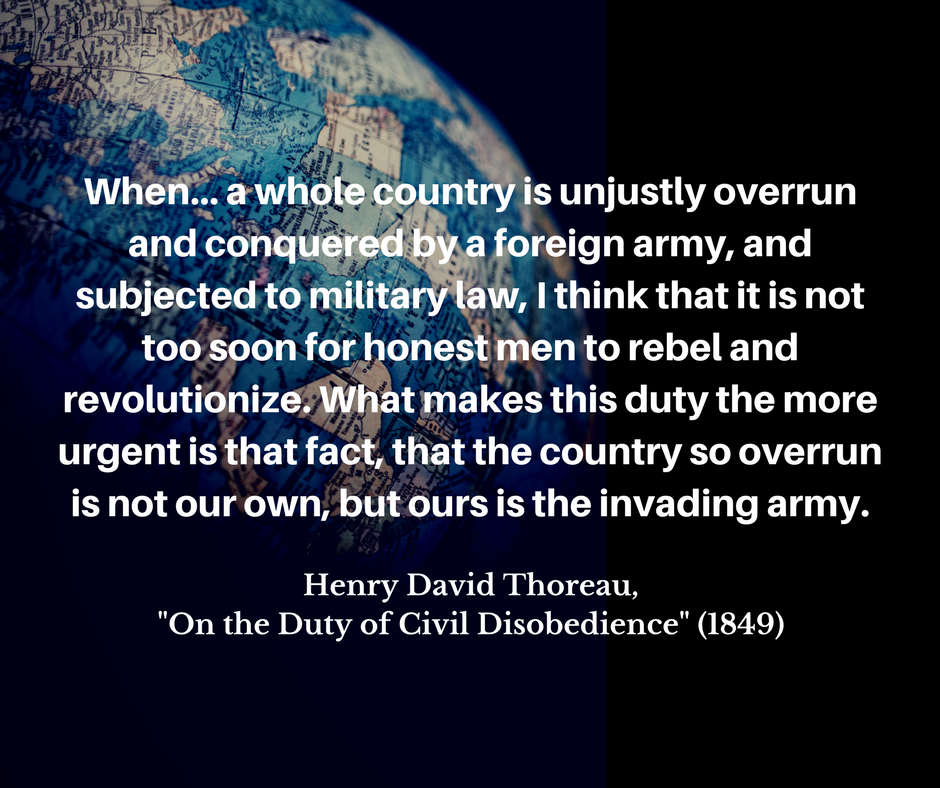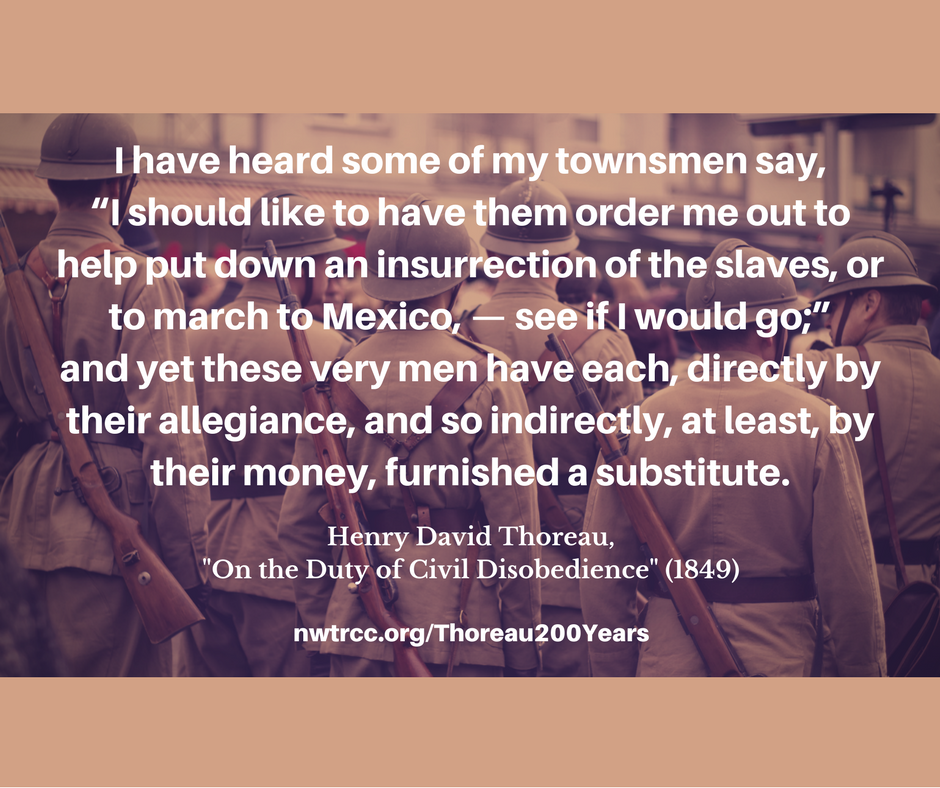 Henry David Thoreau was born 200 years ago on July 12, 1817. His essay, “Civil Disobedience” (1849), has influenced thousands of protesters, war tax resisters, and direct action practitioners over the years. Part of the essay recounts his night in jail as a war tax resister, while other sections call on people to act in their own ways against state violence.
Henry David Thoreau was born 200 years ago on July 12, 1817. His essay, “Civil Disobedience” (1849), has influenced thousands of protesters, war tax resisters, and direct action practitioners over the years. Part of the essay recounts his night in jail as a war tax resister, while other sections call on people to act in their own ways against state violence.
Today we celebrate the spirit of “Civil Disobedience,” also sometimes called “Resistance to Civil Government,” or “On the Duty of Civil Disobedience.” In the following passages, Thoreau calls us to disobey a state that commands us to kill, enslave, and subjugate – or to pay for others to do the same.
“How does it become a man to behave toward this American government to-day? I answer that he cannot without disgrace be associated with it. I cannot for an instant recognize that political organization as my government which is the slave’s government also.”
“In other words, when a sixth of the population of a nation which has undertaken to be the refuge of liberty are slaves, and a whole country is unjustly overrun and conquered by a foreign army, and subjected to military law, I think that it is not too soon for honest men to rebel and revolutionize. What makes this duty the more urgent is that fact, that the country so overrun is not our own, but ours is the invading army.”
“There are thousands who are in opinion opposed to slavery and to the war, who yet in effect do nothing to put an end to them; who, esteeming themselves children of Washington and Franklin, sit down with their hands in their pockets, and say that they know not what to do, and do nothing; who even postpone the question of freedom to the question of free-trade, and quietly read the prices-current along with the latest advices from Mexico, after dinner, and, it may be, fall asleep over them both.”
“I have heard some of my townsmen say, “I should like to have them order me out to help put down an insurrection of the slaves, or to march to Mexico, — see if I would go;” and yet these very men have each, directly by their allegiance, and so indirectly, at least, by their money, furnished a substitute. The soldier is applauded who refuses to serve in an unjust war by those who do not refuse to sustain the unjust government which makes the war; is applauded by those whose own act and authority he disregards and sets at nought; as if the State were penitent to that degree that it hired one to scourge it while it sinned, but not to that degree that it left off sinning for a moment. Thus, under the name of order and civil government, we are all made at last to pay homage to and support our own meanness.”

“Thus the State never intentionally confronts a man’s sense, intellectual or moral, but only his body, his senses. It is not armed with superior wit or honesty, but with superior physical strength. I was not born to be forced. I will breathe after my own fashion. Let us see who is the strongest.”
Check out additional readings and resources at our Henry David Thoreau Bicentennial page.

Watching Jeopardy last night, the July 12 show, in the Thoreau category (honoring the bicentennial so that was cool) in response to a clue to name the essay that includes this quote – “That government is best which governs least”……
2 answered with some version of Walden and the other person just looked lost.
It was sad to see, so more people should share this link to this bog post!!